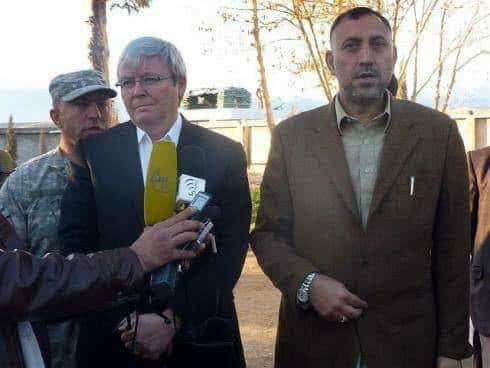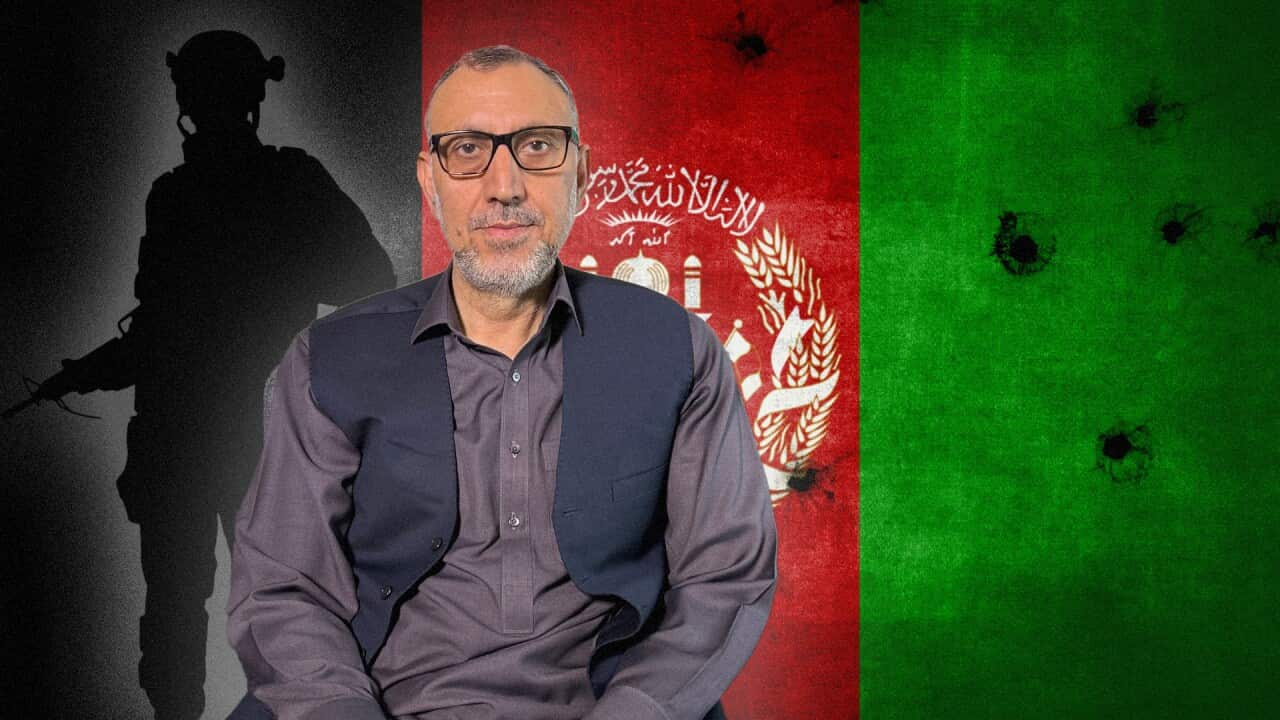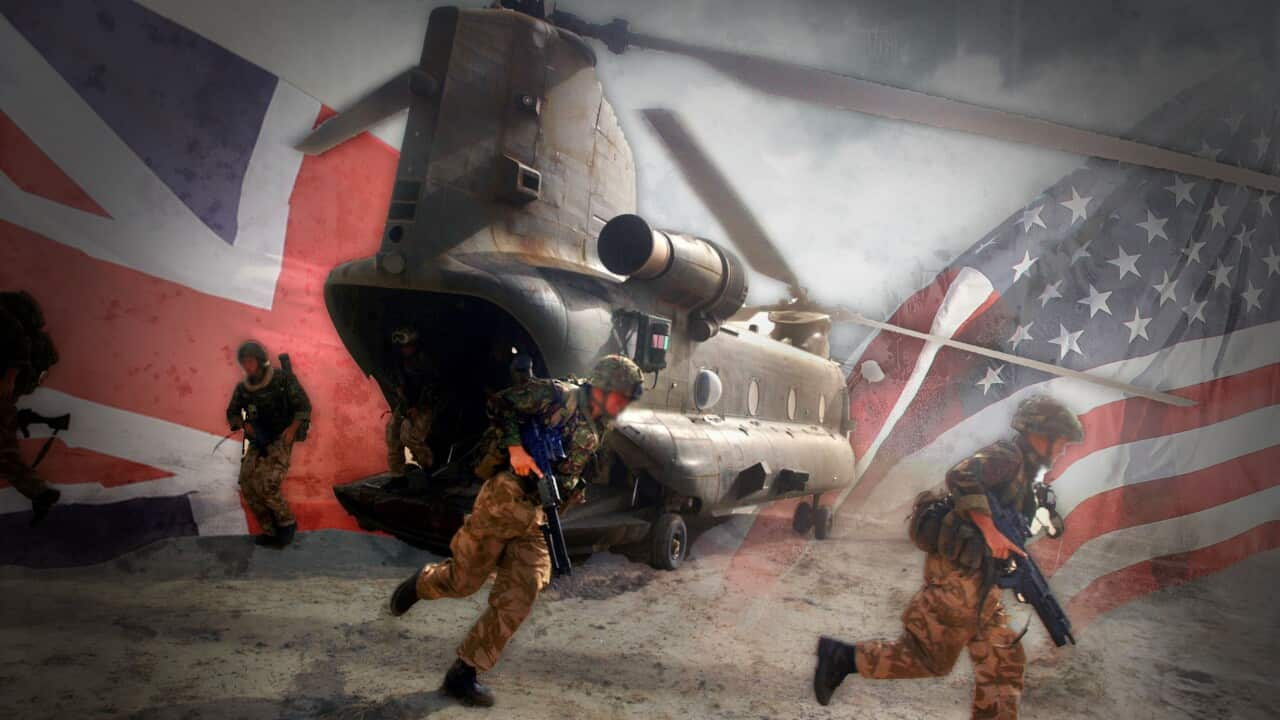KEY POINTS:
- The former governor of Uruzgan Province says Australian war crimes were a 'reality'.
- But he insists Australia also helped Afghan girls attend school.
- Mohammad Omar Sherzad recently arrived in Australia on a humanitarian visa.
War crimes committed by Australian troops in Afghanistan were a "reality" and contributed to the Taliban's takeover of the country a decade later, says a former high-ranking Afghan in charge of the province in which Australian soldiers were based.
The former governor of Uruzgan Province, Mohammad Omar Sherzad, has told SBS Pashto a "proper investigation" into atrocities carried out in his home region has never been possible because of Taliban interference.
But Sherzad also insisted Australia's presence in Uruzgan ensured the region developed "a well-functioning administration" which enabled Afghan girls to go to school.

Sherzad (right), pictured speaking to SBS Pashto, resettled in Australia in June on a humanitarian visa.
He fled to Turkey in September 2021, while the Taliban was carrying out reprisals against government officials. He resettled in Australia in June this year on a humanitarian visa.
Speaking in his first interview since his arrival, Sherzad said his government received multiple reports of Afghan civilians dying at the hands of Australian soldiers in 2011 and 2012.
"In the areas where the Taliban were active and Australian forces were having operations, we were receiving reports about civilian casualties," he said.
Australian special forces (SAS) carried out many of their missions in Uruzgan, and Sherzad warned it was "natural" the killings provided a propaganda boost to the Taliban in the area.

Sherzad meets then prime minister Julia Gillard in 2011. Then ADF chief David Hurley, now the governor-general, is in uniform and wearing glasses on the left. Source: AAP / PO Damian Pawlenka/PR IMAGE
"The people were getting upset, and the Taliban’s side was getting stronger. This also helped the Taliban to support their claim that they are fighting against foreign invasion."
Sherzad said the reports flowed in between 2011 and 2012.
"This was a reality and no one could ignore it," he said.
"This has happened. Some crimes have been committed by the Australian forces and also war crimes have been committed by the soldiers of England, America and Germany."
The Brereton Report on war crimes committed by Australian soldiers in Afghanistan detailed "credible evidence" of 39 murders committed by 25 Australian SAS troops in Afghanistan, but reported just one "unsubstantiated" claim of an illegal killing in 2011.
The Office of the Special Investigator (OSI) in Australia is conducting around 40 war crimes investigations. Former SAS soldier Oliver Schulz has been charged with murder over a 2012 shooting in Uruzgan.

Sherzad, right, with former prime minister Kevin Rudd.
"The problem was that there were no conditions for a proper investigation — those areas were in the hands of the Taliban and no one could conduct a proper investigation," Sherzad said.
A senior Taliban official that the group would grant Australian police access to Afghanistan, provided it believed their investigation was "honest". The idea has been dismissed by human rights activists who say the Taliban has "no credibility".
Australians made 'highly beneficial' contributions: Sherzad
Australian troops served in Uruzgan for over a decade before leaving in 2013. Australia withdrew from Afghanistan altogether in 2021.
And Sherzad insisted Australian troops contributed to a period of "relatively good" security in the province, which enabled travel to its various districts.
“I remember that during that time girls and children were attending schools in remote districts, and we had coordination with [the Australians]. We don’t have any bad memory of their presence," he said.
The Australians also contributed to "highly beneficial" construction projects such as road and bridge building, along with agriculture and education, he said.
“The biggest contribution made during that period was their assistance in capacity building for the people of Uruzgan," he said.
"When I returned to Uruzgan for the second time, we had a well-functioning administration and capacity building was one of the key factors behind it.”











